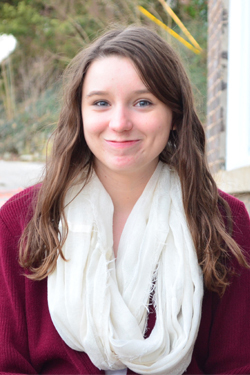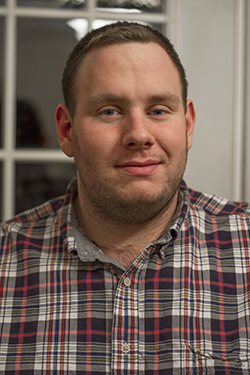She Said, He Said: College Safe Spaces
The following is the second entry in “She Said, He Said,” a new series of articles seeking to compare and contrast the various views, political, social or otherwise, of Millennials in today’s world. Elizabeth Lane is a 2016 Carson-Newman University graduate with a BA in Creative Writing, and has worked at the Jefferson County Post as a journalist and feature writer since shortly before her graduation. Jake Depew is a 2014 Carson-Newman University graduate with a BS in Philosophy. He is the assistant editor and a columnist for the Jefferson County Post, and is the Editor for the Gatlinburg Daily Post.
This article’s question: “How do you feel about safe spaces for college students?”
She Said:
There’s a simple rule that all of us must live by and be reminded of on a daily basis: life is tough. We do things that we would rather not do, like going to work when we really just feel like staying in bed and sleeping in, or changing a flat tire in the rain, or going to the doctor or dentist. Needless to say, life is full of disappointments that we all must deal with.
Some would say that life’s less than ideal moments are character building moments. Moments that are meant to give us tougher skin and make other hard moments easier to deal with. The thing about human nature and emotion is that we handle all things differently. Our emotions and feelings are dependent on a number of circumstances, as well as individual upbringing and experiences.
Bearing this in mind, I want to talk about safe spaces for college students. Usually these places are used to help students cope with whatever emotional or psychological issues that they might be experiencing. This is a great tool for students, especially given that many are far away from home, and sometimes this can cause confusion and chaos to reign.
Going to safe spaces can give students peace of mind about their own lives and situations. This can help with geting rid of some of the more lingering negative feelings, and can help students replace them with positive words and coping mechanisms. I’m not sure how far these coping mechanisms extend beyond the usual therapy of life’s situations.
Over the election season we saw many saying they would protest and take to the streets if Trump was elected president. After he was elected many of us saw those threats in action in the forms of riots and violence. Let me begin by saying that these forms of protest are unnecessary and unsuccessful forms of protest. When I think of protest I think of intellectual protests, the like of which were employed by the late Dr. King, for instance.
When the seemingly unthinkable happened and Trump was elected many college students were seeking safe spaces. Many were telling people that they could not go to class or function in their normal everyday activities. This is not the way that the next leading generations of Americans can act. Instead of being paralyzed with fear, those same people should have been throwing themselves into social programs and their communities to try to make life better.
They might have lost a major battle, but that does not mean that life is suddenly hopeless. Defeat should allow those that have lost to take a step back and look at what they really prioritize and want. Then, they should get with likeminded individuals and try to change the world. What kind of message does it set for future generations when those raising them are too stubborn to stand up and carry on? It is frightening to think of a world with people getting way-to-go trophies for doing nothing.
Hard work and defeat are a part of growing as a human being. You cannot win all the time. Instead, use the adage of “pulling yourself up by your boots straps and trying again.” You will be doing yourself and those around you a disservice if you don’t. The world is not made by those who sit idly by, but by those who, in spite of everything, still choose to actively engage in it.
He Said:
Oh, I’m looking forward to this one.
What do I think about safe spaces on college campuses? Before I rip into the subject, I should clarify exactly what I’m talking about. I wholeheartedly agree that students should have access to psychological or counseling assistance, especially given how draining certain programs or course loads could be. To be frank, American mental health awareness is pitifully low in most areas, with overreactions plaguing others. I’m also all in favor of a “chill out zone,” a designated area set up so students can unwind from a hectic or heavy semester. But safe spaces?
If I’m being honest, I know this is going to sound harsh. If I’m being doubly honest, I’ll admit I don’t particularly care. Safe spaces, as are currently being used all across the nation’s universities and colleges, are the most academically and intellectually dishonest movement since book burning. You go to a university to be challenged by new ideas. At no point in the fine print of that college application does it say you will like the ideas you encounter. As I said above, I completely support the notion that students should have a place where the entire point is unwinding. I guess my problem isn’t with safe spaces, per se, as much as it is with how institutions bow to those who abuse the privilege.
I’ll give college students an out: college isn’t real life. You’re starting to figure out how to deal with people, but we could all use a break from people. Maybe you like safe spaces because you live in a dorm. You can’t go home and shut off your phone like the rest of us. The sheer arrogance you must have to demand that you be excused from class or from particular assignments based on this stress blows my mind. This is the danger of the safe space mentality. Thankfully, there is a way you can have neutral ground for students while maintaining academic integrity.
Flunk students that don’t participate in their course work. I know it’s a novel idea, but it just might work. The entire concept of a university revolves around the challenging of ideas. If you cannot meet that minimum requirement, you shouldn’t be in the institution. I know these universities want their money, so the students will, naturally, go on academic probation the first semester.
Ultimately, the idea behind safe spaces is good-natured. I understand why people would think it is a good idea. As long as you don’t let it interfere with the academic process, it probably is a good idea. What scares me is that it is treading dangerously close to a level of censorship we haven’t seen in sixty years in the West, or two-and-a-half centuries in America. The dissemination of ideas is the Magnum Opus of mankind. Virtually every major communication advancement in history has led to cultural explosions and technological leaps. Yet, now we stand in the early years of the 21st century, a century poised to have more communication breakthroughs in two decades than the prior two millennia, and have widely declared that some ideas just shouldn’t be heard because they make us uncomfortable. What worries me is not that this is being done to us, but that we are doing it to ourselves. Whether it is the Puritanical censorship of early America or Nazi book burning in the Third Reich, most cases of massive censorship have been by decree. The church declares it so. A dictator takes issue with the material. This is something largely new. No order from on high had to be given. We somehow just… got to this point. If you think Fahrenheit 451 is a book about the government coming to take your books, I challenge you to read it again with our current society in mind.











